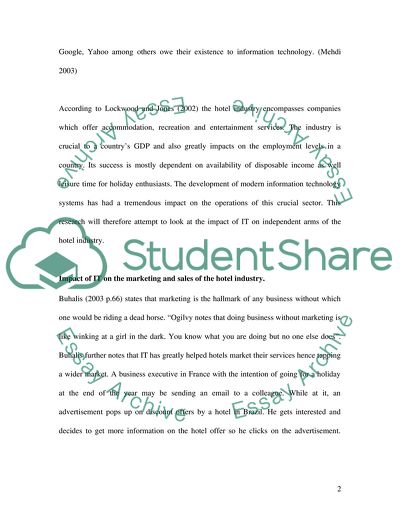Cite this document
(The Impact of IT on the Hotel Industry Case Study, n.d.)
The Impact of IT on the Hotel Industry Case Study. Retrieved from https://studentshare.org/tourism/1730373-the-impact-of-it-on-hotel-sector
The Impact of IT on the Hotel Industry Case Study. Retrieved from https://studentshare.org/tourism/1730373-the-impact-of-it-on-hotel-sector
(The Impact of IT on the Hotel Industry Case Study)
The Impact of IT on the Hotel Industry Case Study. https://studentshare.org/tourism/1730373-the-impact-of-it-on-hotel-sector.
The Impact of IT on the Hotel Industry Case Study. https://studentshare.org/tourism/1730373-the-impact-of-it-on-hotel-sector.
“The Impact of IT on the Hotel Industry Case Study”, n.d. https://studentshare.org/tourism/1730373-the-impact-of-it-on-hotel-sector.


